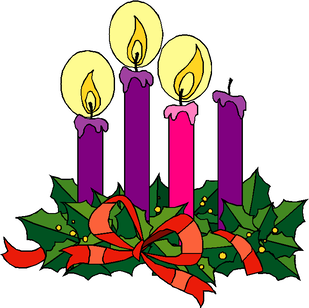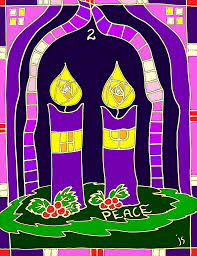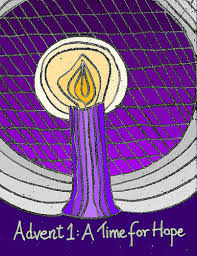
It’s less than two weeks to Christmas and the countdown has begun. Presents to buy and wrap. Parties to attend. Stockings to fill. Cookies to bake. Poor Santa has to deal with these last-minute requests:
“Dear Santa – please just text my dad – he has the whole list. I love you TE. DK sent the following reminder to Mr. Claus: “Dear Santa, if you’re going to bring toys with batteries, please bring batteries.” Here’s a little lady who knows what she wants: “Dear Santa: For Christmas this year I want a smartphone 10 from Verizon. I have been very good at school. And please bring my brother whatever he wants. Love Yzette.” Or better, here’s Lucy’s list “ Dear Santa: please bring me a big fat bank account and a slim body. And don’t mix them up like you did last year.” You said it, Lucy. Finally, this letter writer took a sinister tone to get what they want. This letter came in a box with a red reindeer collar. Dear Santa: I have Rudolf. This is proof. Bring me these toys or I’ll send you the rest of him. Don’t try anything funny. I want DanceDance Revolution. All the dolls in the world. New red Bike. Anything else I want ever.” How lovely. Now Santa’s going to need to carry a can of mace, the reindeers will need body shields, and perhaps replace those cookies with a dose of Xanax to make it through the night.
Yet throughout the season Andy Williams croons, “It’s the most wonderful time of the year.” Brenda Lee encourages us to be “Rockin around the Christmas Tree.” Frank Sinatra implores us to “have ourselves a merry little Christmas, ..because from now on our troubles will be miles away…” What a contradictory mess Christmas has become. The best of days, longing for those golden days, the most disappointing of days, with sales galore crammed down our throats, and no time to meditate, to understand, and to reflect.
We valiantly try to make Christmas special. According to Forbes, Americans spend an average of nearly $800 on presents at Christmas, and we spend an additional $1800 on other items, which we tend to forget in our Christmas calculations, like Christmas trees, decorations, food, Christmas cards and travel, for a total of more than $2600 a year. Stacey Powell, who is an accountant and financial coach, says the most common feelings about Christmas she hears from her clients are shame, regret, anguish and embarrassment. Mental health professionals and clergy know this is true. This isn’t the most wonderful time of the year, for a lot of people. There’s no money for all those amazing gadgets and decorations. There’s no family or friends to spend the holidays with. We can’t keep up with the Kardashians. The spell consumerism casts upon us leaves us feeling guilty for not having enough, being enough, doing enough. We are filled with expectation, but for what? We are left with emptiness, a yearning for something different. We want the loneliness to stop. We want the violence to stop. We want to be touched by the birth of Jesus, by love and joy. We want this Christmas to be different. Presents don’t bring us joy. Parties don’t bring us joy. Sometimes, sometimes for some people, coming to church doesn’t bring us joy. So what are we to do -- because God wants us to be joyful. What does it mean to be joyful in the face of tragedy and consumerism?
These yearnings tug at us as we enter our third week of Advent – the week we are invited to reflect on joy. This we know: Joy is not happiness. Happiness comes from the world around us. Happiness is conditioned by and often dependent upon what is "happening" to us. Happiness is dependent upon our circumstances. Happiness is like the moon, waxing and waning. Happiness is, born in mind, like exchanging Christmas presents. Joy however is not affected by external happenings. Joy is a state of mind characterized by peace, a spiritual anchor that grounds us despite life’s inconsistencies. Joy cannot be found in pleasure or in wealth and riches, or in prestige or fame. Joy doesn’t mean we’re always going to be perky and smiley full of cheers. Joy is found however in the fabric of relationship. Joy flows on the eternal love of the Lord. Joy is like the sun, always shining even when night falls, clouds cover it, or we are tilted away from it. Joyful people – aren’t consumed by negative thoughts. They encourage, and build up each other. Joy is perhaps the greatest gift we can ask for ourselves and give one another, when days are dark, and spirits confused.
We know this: Joy is both an outcome of our relationship with God and our source of strength for our obedience of Him. (John 15) The Joy of the Lord is our strength. (Nehemiah 8:9). Interestingly, the Hebrew language has ten words for joy. We might well ask why would Judaism would need ten words for it, especially since Jewish history was and is so often marked by suffering, pain and upheaval? Why would Judaism need ten words for joy? The answer given in the tradition is that it is God's expectation that we will have joy; that we deserve joy in such measure that we will need at least that many different words to capture the fullness of the experience.
When it comes to joy, we need only open ourselves to the experience. To anticipate it without expectation, to expect it without entitlement, and receive it with humility. Joy doesn’t come from the burdens and expectations we place on ourselves. For we can never measure up. We will always feel empty. There are always sorrows. That’s why many of us get the Christmas blues. Joy comes when we let go of expectations, but are filled with expectation, filled because we have been touched by God’s word, God’s presence, God’s love for us – so who can be against?
Joy is here with us, not primarily because we are anticipating the birth of Jesus, but because God is already in our midst. That is what the prophet Zephaniah shares. Rejoice and exult in your heart, daughter Jerusalem. God will rejoice over you with gladness. The prophet is speaking these words of encouragement to a people who have been burdened with war and destruction and displacement. Their lives have been assaulted and their hopes have been dashed. And yet, joy is alive. It hasn’t erased the past. It spite of painful memories, Joy has not been erased.
No where do we see this than in the life of John the Baptist. For Catholics, John the Baptist is the patron saint of spiritual joy. He leapt for joy in his mother’s womb at the presence of Jesus and Mary (Luke 1:44). And it says that he rejoices to hear the bridegrooms voice (John 3:29-30). “My joy is now full. He must increase and I must decrease.” He embodied joy even though he lived in the wilderness, with a camel hair coat and eating locusts and honey. He was joyful even as he spoke his first words in Luke are “You brood of vipers! Who warned you to flee from the wrath to come?” As the forerunner of the Messiah, he challenges us to build the foundation of our lives on joy. John was different. The people ask John: “What shall we do?” We might expect this ascetic to make radical demands: Leave everything and join me in the desert; adopt a life of fasting and penance. But John does not make such demands. Instead, he calls people to fidelity in the very circumstances of their lives: Those who have more than they need, share with those who have less; tax collectors, be honest; soldiers, do not take advantage of the vulnerable and be content with your wages; parents, cherish your children; spouses, be faithful; neighbors, live in peace. That’s the foundation of joy. Joy is not a feeling, but a way of life.
John models an attitude of mind and heart that is needed in today’s world. Bear fruits that your life will be different. Show this by being content. Live in peace. Be honest. Cherish one another. From these practices we grow the fruit of the Spirit, joy. Let us start practicing Joy.
What is Joy? It is knowing the difference:
Santa lives at the North Pole. JESUS is everywhere.
Santa rides in a sleigh. JESUS rides on the wind and walks on the water.
Santa comes but once a year. JESUS is an ever present help.
Santa fills your stockings with goodies. JESUS supplies all your needs.
Santa comes down your chimney uninvited. JESUS stands at your door and knocks, and then enters your heart when invited.
You have to wait in line to see Santa. JESUS is as close as the mention of His name.
Santa lets you sit on his lap. JESUS lets you rest in His arms.
Santa has a belly like a bowl full of jelly. JESUS has a heart full of love.
Santa says "You better not cry." JESUS says "Cast all your cares on me for I care for you."
Santa's little helpers make toys. JESUS makes new life, mends wounded hearts, repairs broken homes and builds mansions.
Santa is a "jolly old self." JESUS is the King of Kings.
While Santa puts gifts under your tree, JESUS became our gift and died on a tree. So let us recapture the joy God promises us as we approach with anticipation the birth of the Holy Child, Jesus, Joy of the World. Amen.


 RSS Feed
RSS Feed